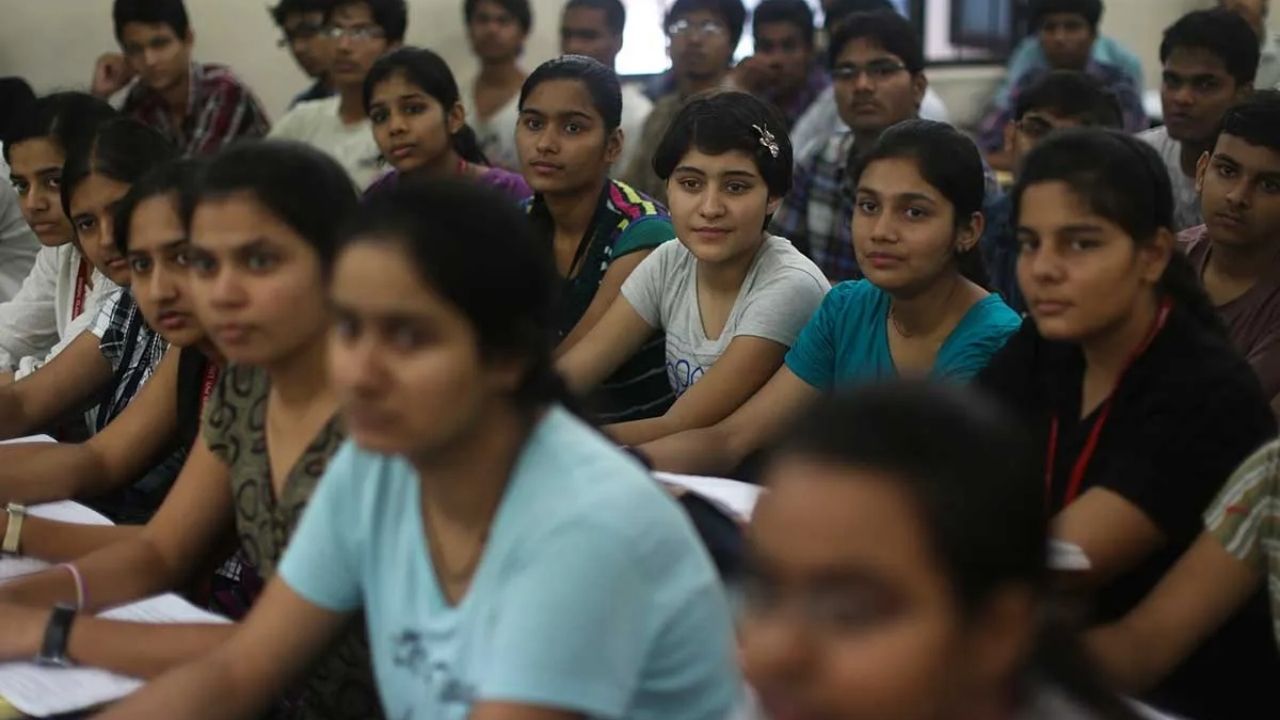In today’s fast-paced world, professionals are constantly on the lookout for ways to upskill and stay ahead in their fields. Whether you’re looking to climb the corporate ladder or switch careers, a master’s degree can be a valuable asset. But for many professionals, the traditional approach to higher education doesn’t always work. This is where IIT Bhubaneswar’s new Blended M.Tech in Systems Engineering steps in, offering a flexible yet rigorous option for those eager to advance their skills while balancing their jobs.

The programmed is designed specifically for working professionals who wish to enhance their expertise in systems engineering without disrupting their careers. Through a blended learning model, students can attend classes online while also participating in occasional in-person sessions. This innovative approach ensures that students gain both the technical depth and practical insights they need to excel in today’s competitive job market.
IIT Bhubaneswar Introduces Blended M.Tech
| Feature | Details |
|---|---|
| Target Audience | Engineers with at least three years of professional experience |
| Programme Duration | Minimum two years (extendable up to five years) |
| Mode of Learning | Blended: Combination of online and in-person classes |
| Curriculum Focus | System modeling, predictive maintenance, reliability engineering |
| Industry Collaboration | Developed in collaboration with Applied Materials India Pvt. Ltd. |
| Admission Process | No GATE score required; industry-based evaluation |
| Official Admission Portal | IIT Bhubaneswar M.Tech Admission |
The Blended M.Tech in Systems Engineering from IIT Bhubaneswar is a game-changer. Designed for industry professionals, it combines the rigor of a top-tier institution with the flexibility required for busy schedules. Whether you’re a seasoned engineer working in the manufacturing, IT, or telecommunications sectors, this program can equip you with the skills needed to handle complex systems and improve performance in your field.
The Blended M.Tech in Systems Engineering at IIT Bhubaneswar is an excellent opportunity for working professionals looking to advance their careers without having to put their jobs on hold. With a flexible learning format, industry-relevant curriculum, and no GATE score requirement, this programme offers the best of both worlds—academic rigor and practical learning. Whether you’re looking to specialize in systems modeling, predictive maintenance, or machine learning, this programme will help you gain the skills necessary to tackle the challenges of modern engineering.
Understanding the Importance of Systems Engineering
Before diving into the specifics of the programme, it’s important to understand why systems engineering is so critical in today’s technology-driven world. Systems engineering involves the design and management of complex systems over their life cycles. Whether it’s a manufacturing process, a software system, or a transportation network, systems engineers ensure that all components work together efficiently and reliably.
Systems engineering is foundational in sectors such as automotive, aerospace, defense, and telecommunications, where engineers must manage intricate designs, predict failures, and optimize performance. For example, in automotive engineering, a systems engineer might oversee the integration of various subsystems, like engine performance and safety features, ensuring they work seamlessly together.
By pursuing a Blended M.Tech in Systems Engineering, professionals can acquire the advanced tools, methodologies, and problem-solving techniques needed to tackle these challenges.
Why IIT Bhubaneswar’s Blended M.Tech?
The launch of this new programme marks a significant step forward in higher education, catering to the needs of engineers working in technical fields who may not have the time or flexibility to pursue traditional full-time postgraduate courses. IIT Bhubaneswar has designed the programme to be industry-centric, with an emphasis on practical learning. The curriculum covers topics such as system behavior modeling, performance testing, reliability engineering, and statistical machine learning—all essential areas for engineers seeking to advance their careers.
Blended learning makes this programme particularly attractive. Students can participate in online classes, which provide the flexibility to learn at their own pace. Meanwhile, periodic in-person sessions ensure that students receive hands-on experience and direct interaction with faculty members. This balance between self-paced learning and face-to-face interaction gives students the opportunity to gain deep theoretical knowledge while also engaging in real-world applications.

Breaking Down the Curriculum
The Blended M.Tech in Systems Engineering offers a robust curriculum designed to give engineers the knowledge and skills required to excel in the modern industrial landscape. Here’s a breakdown of some of the key topics and modules covered:
1. System Behavior Modeling
System behavior modeling is one of the core subjects of this programme. This involves understanding how different components of a system interact with each other over time. Engineers will learn to build models that can predict how systems behave under various conditions. For example, a system engineer in the automotive industry might use modeling techniques to predict how a car’s engine will perform under different weather conditions or stress tests.
2. Reliability Engineering
In reliability engineering, students will learn how to design systems that function continuously without failure. Reliability is key in industries such as aerospace and telecommunications, where downtime can be costly and even dangerous. For example, engineers working on aircraft systems will need to ensure that every component is designed to meet stringent reliability standards to avoid mid-flight malfunctions.
3. Performance Testing
Engineers are often tasked with testing systems to evaluate their performance and identify areas for improvement. This course will teach you how to apply statistical methods to assess the performance of systems, whether it’s a manufacturing line or a software application. You’ll also learn how to optimize system performance using various performance metrics.
4. Predictive Maintenance
In this area, students will be introduced to techniques for forecasting system failures before they happen. Predictive maintenance helps reduce downtime and prolongs the life of expensive equipment, which is crucial in industries like oil and gas and heavy machinery. Professionals will gain skills in using data analytics and sensors to predict when maintenance should occur, minimizing unexpected breakdowns.
5. Statistical Machine Learning
Machine learning techniques are becoming increasingly important in systems engineering. This course introduces statistical machine learning methods that engineers can use to analyze data and identify patterns. This can be applied to everything from network optimization to smart manufacturing processes. Students will learn how to use machine learning algorithms to improve the design, efficiency, and reliability of systems.
The Admission Process
One of the most appealing aspects of the Blended M.Tech in Systems Engineering is that it doesn’t require a GATE score, which is often a barrier for many working professionals. Instead, candidates are selected based on an evaluation procedure tailored specifically for industry professionals.
This makes the programme accessible to those who may not have had the chance to appear for GATE exams but have substantial industry experience. The application process involves submitting relevant professional experience, academic credentials, and other supporting documents. Once selected, students can start their journey towards an advanced degree while still managing their careers.
Utkal University Revokes Jagneshwar Dandapat’s Appointment as In-Charge Vice Chancellor
Odisha’s Move to Install CCTV Cameras in Schools for Safer Learning Environments
Star Air Launches Direct Flight Service Between Bhubaneswar and Jharsuguda Starting August 16
FAQs
Q1: Is this programme suitable for professionals with no background in systems engineering?
Yes! While prior engineering experience is necessary, you do not need to have a specialized background in systems engineering. The programme is designed to accommodate professionals from various engineering disciplines.
Q2: How is the blended learning model structured?
The programme combines online lectures with periodic in-person sessions, offering the flexibility to learn from anywhere while also ensuring hands-on, interactive learning.
Q3: How do I apply for the programme?
You can apply through the official IIT Bhubaneswar M.Tech Blended Mode Admission Portal. Be sure to submit all necessary documents before the deadline.
Q4: What are the career prospects after completing this programme?
Graduates of this programme can pursue roles in industries such as automotive, aerospace, telecommunications, defense, and IT, where they will manage complex systems, improve system performance, and enhance reliability.





